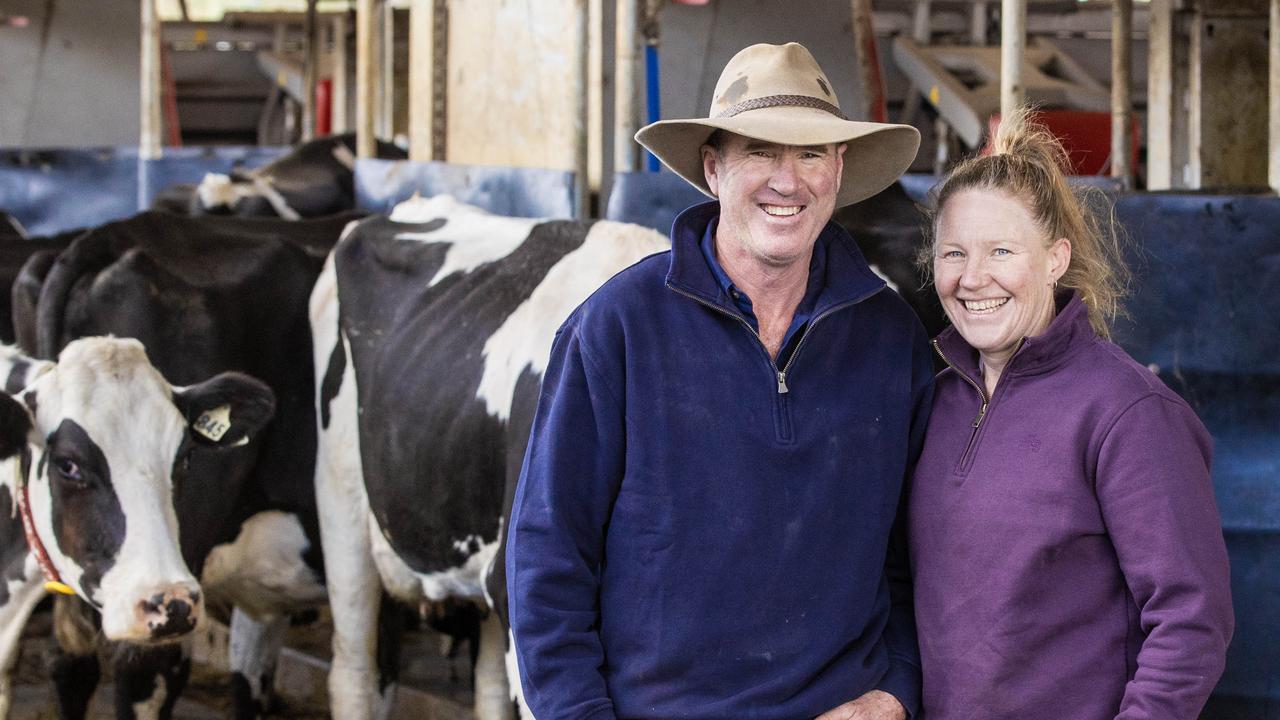Vee Jay’s Kalfresh: Sustainable farming practices generating cash
Queensland’s Jurgens family have created an innovative joint venture that focuses on the tightrope balancing of sustainability and commercial viability.
Sustainable farming is the core of the Jurgens family’s farming philosophy.
Melita and Jamie Jurgens balance their commercial farming business with sustainable production through soil management, biodiversity and crop rotation.
The couple farm more than 800ha near Bowen in the Burdekin Valley in Far North Queensland.
Melita and Jamie, along with their children Jess, 23, and Jacob, 21, lead the way in producing certified organic vegetables under vertically integrated business, Vee Jay’s Kalfresh.
Sustainable farming has been a constant focus for the Jurgens, to ensure the health of their farm is maintained for future generations.
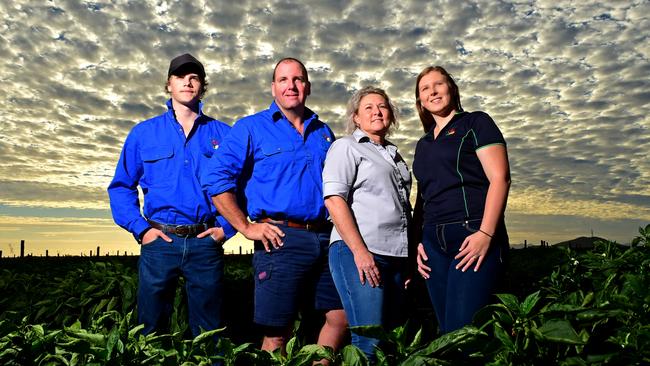
“We said that if we have tenure of this land for 40 years in our business life — this land has to feed generations to come — and if we’re not responsible with it, what’s going to feed people?” Melita said.
“Farming near the Great Barrier Reef — which we love to visit and we’re sure other people would like to visit for years to come — means it’s our right to do things as environmentally friendly as possible,” Jamie said.
The Jurgens work to improve soil health and increase organic carbon through practices including composting, crop rotation and precision farming practices.
“By increasing organic carbon, it allows us to hold more water and increase the mineral levels in the soils as well. And the microorganisms flourish, which aid in plant health.”
“We’ve spent lots of time and energy on recycling water and increasing nutrients in the soil naturally,” Jamie said.
“We were very focused on sustainable farming and ensuring the health of our farm was there for further generations. Not destroying our soil by over cultivating and using lots of chemicals. We’ve spent lots of time and energy on that.
“It was a hard story to sell because most people don’t understand those fundamental principles.”
Around 20 per cent of the farm is certified organic and principles in their conventional farming system are similar to their organic principles.
Jamie said one of their biggest barriers to their organic certification was pest management from neighbouring farms.
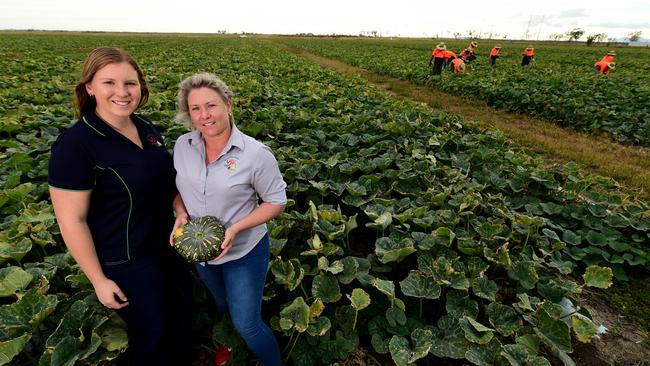
The Jurgens built their own insectary to build their beneficial insect population.
“The insectary is a building with rooms at different temperatures and humidities where we raised insects in containers. These insects are beneficial which are insects that eat or parasitise our pest insects.”
“It is a big change in mind set and you need to realise that there will be pests and there will be some damage, but you rely on the beneficial insects to keep the numbers of pests in check,” Melita said.
“We sold the insectary business last year, but we remain very well associated with it.”
DRIVE AGAINST RISK
The seedbed is a no-go zone for machinery under the Jurgens sustainable farming practices.
“We don’t drive where our plants grows so that we’re not compacting soil. GPS has tracks it drives on.
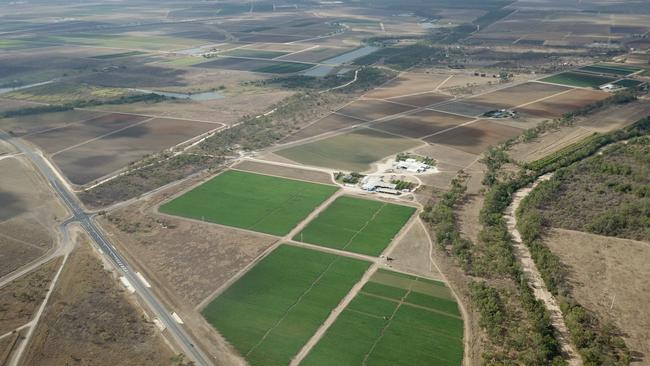
Jamie said one of their biggest challenges was getting machinery to fit their system.
“We have to customise most of our machinery. There’s a lot of large machinery companies for broadacre farming, but with horticulture, each crop is customised.”
“Crops are different; some are direct seeded, transplanted, there’s a range of different growing techniques and row widths, which don’t always allow one piece of machinery to fit all.
“Even though we’re large scale, horticulture is still small scale to customise for. We have to go and see what’s out there and buy and modify.”
ALL SWEET
The Jurgens began composting around 15 years ago during their change in farming methods to remineralise the soil
“Some of the farms we bought were run down and probably nutritionally mined. We needed to turn those lands around very quickly and to find a way to increase the organic carbon and replace a lot of minerals in the quickest way,” Jamie said.
“We found to use the volume of compost, we needed to find reasonably good resources around us that weren’t far because it costs a lot of money to cart.
The Jurgens found that using the pulp of the sugar cane after it is crushed, known as bagasse, was a suitable option.
Bagasse is collected from mills in the area and is mixed with chicken manure from a local egg farm.
“We turn that for a month until it is 60-65C, that’s the bacteria digesting the fibre, up to 34 days, watering and turning in that time twice per week.
As temperature starts to drop, that means the microbes have nearly finished doing what they need to do. We allow it to cure for another three weeks to cool off.
Jamie said there’s a good mixture of bacteria and fungi and minerals, breaking down the fibre and chicken manure.
“The minerals from the compost are stable in the soil, but also readily available.
“We don’t use any chemical fertilisers, not even on our conventional crops. It’s not more cost effective but a lot more sustainable.”
MIX AND MATCH
This year the Jurgens have 930ha under crop, which are grown on rotation.
“We targeted crops that are going to aid one another,” Jamie said.
Green beans, snacking tomatoes, baby capsicum, kent and butternut pumpkin, mini melons and sweet corn are grown under organic certification, while green beans, sweet corn and baby capsicum are also grown conventionally.
“Green beans give us a nitrogen fixing crop for the soil, where sweet corn has a large fibrous root system, which adds a lot of nutrients to the ground. Pumpkins are a low input, deep rooted crop that stores carbon lower in the soil profile.
“Capsicum and tomato are high value lines which allow us to get a reasonable return off land.”
Long growth crops including pumpkins, tomatoes and baby capsicums are planted every five days to ensure a continuous supply of produce through the season.
Crop key performance indicators are focused on yield of tonne per acre as well as quality and labour KPI’s.
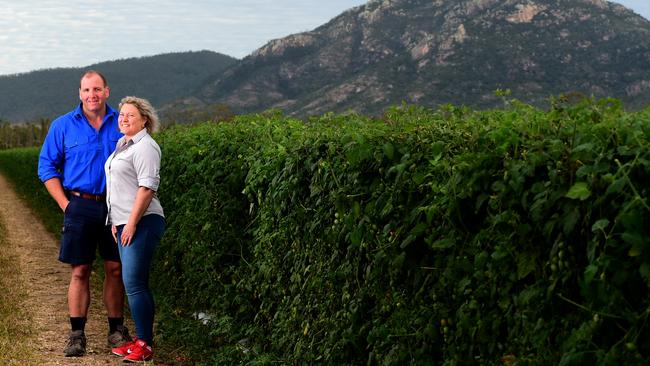
Crops are selected based on suitability as a rotational crop line as well as market opportunities.
“We’re always analysing the market and what customers want and need. Whether it’s a certain pack size, or if someone’s buying a certain number of grams so that we’re offering the volumes that people want to buy or if it’s different packaging, for example if people want more environmentally responsible packing.”
All produce is packed in Bowen, except for prepacked beans that are packed by Kalfresh.
Melita said many of their crops are best suited to packing as close to harvest as possible for the best shelf life.
“Traditionally growing tomatoes was a bulk crop, we’d sell in 10kg boxes or 300kg bins depending on our market. Now we actually sell smaller packet sizes, like 175g pack tomatoes, so that has changed significantly and so too has the machinery we use for packaging.”
“Packing equipment is more computerised and automated to keep labour cost as low as possible and to keep value for everybody,” Jamie said.
ASSURED MARKET
Vee Jay’s Kalfresh is a joint venture between the Jurgens family and Kalfresh Vegetables, which enables 12-month supply and a broader vegetable offering. Jamie, together with Richard Gorman are joint chief executives of VJ Kalfresh.
The next three to five years are a growth phase of volume and value for the business.
“Cost of production currently is increasing weekly. It is a frightening time as it would be very easy to lose a lot of money growing now, especially with the crazy weather events we have had which has directly affected the yield everyone can now harvest,” Melita said.
“We’re positive thinkers. We feel we’re quite an innovative business that keeps an eye on opportunities, whether it’s different products, packaging, or a process to add value.”
While the business has expanded significantly in recent years, Jurgens Produce came from humble beginnings in 1976, when Jamie’s parent’s Vern and Janette began selling tomatoes grown on their 16ha property.
“It was just the two of them. Dad did the ground prep and picking and mum did the packing.”
Jamie and Melita’s children are the fifth generation to farm in the Bowen area.
Jacob is currently studying agribusiness and Jess has returned to the family business full time after completing her agribusiness and sustainable agriculture studies.
“Jess plays a large role in the business, mainly as quality assurance and supply manager. She helps link in production with harvesting and packaging and sales,” Jamie said.




